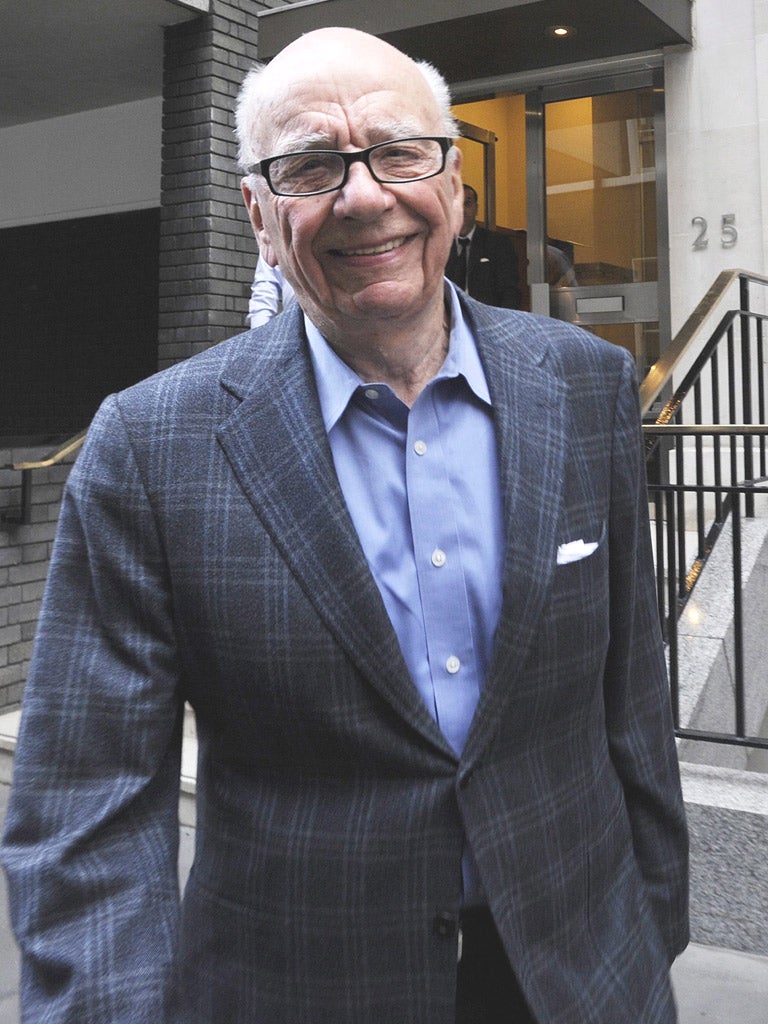Digital setback for Murdoch as 'secret' iPad project folds
Team working on sport and entertainment content for tablets sent back to Wapping

Your support helps us to tell the story
From reproductive rights to climate change to Big Tech, The Independent is on the ground when the story is developing. Whether it's investigating the financials of Elon Musk's pro-Trump PAC or producing our latest documentary, 'The A Word', which shines a light on the American women fighting for reproductive rights, we know how important it is to parse out the facts from the messaging.
At such a critical moment in US history, we need reporters on the ground. Your donation allows us to keep sending journalists to speak to both sides of the story.
The Independent is trusted by Americans across the entire political spectrum. And unlike many other quality news outlets, we choose not to lock Americans out of our reporting and analysis with paywalls. We believe quality journalism should be available to everyone, paid for by those who can afford it.
Your support makes all the difference.A year after Rupert Murdoch described the iPad as the tool that would make newspapers "viable again", News International has abandoned a project to produce content for the company's brand on the Apple tablet and similar devices.
Project Two22, a secret initiative named after the building in London's Gray's Inn Road where it was based, has been wrapped up after being branded a failure, The Independent has learned.
In the latest setback for News International, staff from the digital project have been recalled to the company's headquarters in Wapping, east London. They are understood to have been working on apps which specialised in entertainment news and sport. It is believed that the apps were intended to use the iPad to draw a more upscale audience to The Sun's content.
Many of those on Project Two22 had formerly worked at the News of the World, which was closed down in July over the phone hacking scandal.
Following the closure of Project Two22, staff were offered redundancy packages similar to the ones made available when the Sunday newspaper was closed. Almost all refused the terms and most have been redeployed in the digital department of The Sun.
The iPad was credited with having persuaded Mr Murdoch that such a platform was capable of replicating the experience of reading a newspaper but in a digital form. At the start of last year he launched an iPad newspaper, The Daily, in the United States and declared that "simply put, the iPad demands that we completely re-imagine our craft". When Project Two22 was launched last year there was speculation that staff were working on a British edition of The Daily, an idea refuted by sources at News International. More recently Mr Murdoch, who is 81 next month, has become an enthusiastic user of the social networking site Twitter.
Meanwhile at the Leveson inquiry into media standards two of News International's editors, James Harding of The Times and Dominic Mohan of The Sun, have been recalled by Lord Justice Leveson to give further evidence. Harding faces questions over alleged email hacking at The Times, while Mohan is likely to be asked about The Sun's continued use of topless photographs on Page Three, provoking criticism from women's groups.
A week of evidence starts today with the editor of the Daily Mail, Paul Dacre. In what could provide some sparky encounters, Dacre is likely to be asked why his newspaper was the biggest customer of the private investigator Steve Whittamore, who was convicted in 2005 of breaching data protection laws.
He may also be asked about the actor Hugh Grant's claim that the Mail on Sunday may have used phone hacking as the basis of a bogus story claiming he had a "plummy-sounding" mistress.
Join our commenting forum
Join thought-provoking conversations, follow other Independent readers and see their replies
Comments